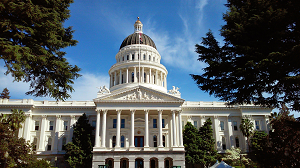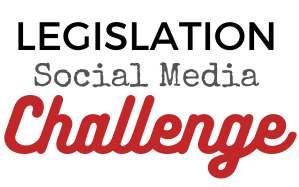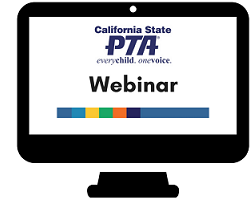
- Why California State PTA supports Proposition 16
- Census 2020 update
- SB 793 passed out of Assembly Health Committee, and on to the next hurdle
- The Legislation Social Media Challenge – can you complete it?
- Advocacy Webinar schedule for remainder of fiscal year
|
|
WHY CALIFORNIA STATE PTA SUPPORTS PROPOSITION 16
|
|

California State PTA is proud to support Proposition 16 to provide equity in state hiring, contracting, and education.
Unfortunately, racism and sexism still deny equal opportunities in California. Everyone deserves the opportunity to succeed – regardless of their gender, what they look like, or where they were born.
This constitutional amendment asks the voters of California to vote on permitting the use of race, gender, and ethnic diversity as factors (but not decisive factors) in education including college admissions, government hiring, and government contracting. This measure repeals Prop. 29, which banned consideration of these factors in public employment, public education, and public contracting.
California State PTA believes in equity in every aspect of life for all children and youth, and effective governance systems and practices that are rooted in social justice to serve the needs of children, youth and families.
PTA was established to secure adequate laws for the care and protection of children, youth and families. We must address a legacy of unequal treatment of marginalized groups and promote fairness and advance upward mobility, pay equity, and racial wealth gap reduction.
A Bit of History
Proposition 209 –
In 1996, California voters banned consideration of race, sex, color, ethnicity, or national origin in public employment, public education, and public contracting by passing Proposition 209. This made California one of the few states in the nation to prohibit this consideration.
Federal law and most states allow policies and programs that consider race, sex, color, ethnicity, or national origin. Before Proposition 209, California supported policies and programs intended to increase opportunities and representation for people who faced inequalities.
What’s the Problem?
Discrimination – “A recent study from the Economic Policy Institute showed that Black workers are twice as likely to be unemployed, and that a similar disparity exists among college-educated Black workers and their white counterparts.
Source: CA Senate Analysis
Gender Pay Gap – “On average, women make 82 cents for every dollar earned by men. If the United States maintains the current level of progress towards pay equity, it will take until 2059 to achieve pay equity for women. Yet, this figure obscures the racial and ethnic component of pay equity: Black women will not achieve pay equity with white men until 2130 and Latinas will not achieve pay equity with white men until 2224.”
Source: CA Senate Analysis
Unequal Society – “The data suggests that we live in a deeply unequal society, where the tools to compete in society are unevenly distributed and distributed in a manner that perpetuates inequality between races and genders at all levels of class and society.”
Senate Committee on Labor, Public Employment and Retirement
Education – “UC’s many years of effort and experimentation with a wide variety of race-neutral approaches demonstrates that, at least under current circumstances in California, highly competitive public universities cannot maintain historic levels of diversity within their student bodies—much less reflect in their student bodies a growing state population of underrepresented minorities—using only race-neutral methods.”
University of California, June 15, 2020 statement
Wealth Gap – “A close examination of wealth in the U.S. finds evidence of staggering racial disparities. At $171,000, the net worth of a typical white family is nearly ten times greater than that of a Black family ($17,150) in 2016.
Brookings “Examining the Black-White Wealth Gap”
On November 3, PTA urges support for this important initiative to promote long needed equal opportunity policies in state hiring, contracting, and education.
|

One form due September 30th = nine confidential questions + three minutes of your time = billions of federal dollars for all communities throughout California.
Census 2020. How important can nine questions be? Very. Did you know that those nine questions (which should only take about three minutes of your time to answer) equate to billions of federal dollars that California could receive to help our kids, young adults, families, and seniors?
Only 64.7% of Californians have completed the Census to date and the Census Bureau has moved up the due date for responses to September 30th. For EVERY person that goes uncounted in the census, California loses $20,000 over ten years for our local communities. Everyone from newborns on up need to be counted, regardless of immigration status.
Census information is safe and secure. Information collected is confidential and cannot be shared with immigration or law enforcement agencies.
Not only do the census numbers determine the number of representatives California has in the U.S. House of Representatives and the number of votes we have in the Electoral College, the information is used to redraw districts for the State Assembly and State Senate so that all communities have fair representation.
The results of the 2020 Census will help determine how hundreds of billions of dollars in federal funding flow into communities for the next decade. This funding includes programs that impact every community and include:
Child care programs Education programs including Head Start, Pell Grants, school lunches, special education Infrastructure including highway planning and construction, Section 8 housing, community development and public transit systems Social assistance programs Healthcare services
Completing and submitting your Census NOW is as simple as 1, 2, or 3:
Online at https://my2020census.gov By phone: 1-844-330-2020 By mail: complete the paper form that you received in the mail, and mail it back.
|
|
|
SB 793 PASSED OUT OF ASSEMBLY HEALTH AND ON TO THE NEXT HURDLE
|
|

SB 793 (Hill), the bill to outlaw flavored tobacco, passed out of the Assembly Health Committee on August 4. There were several hours of testimony both for and against and the committee members themselves had a lengthy discussion before it passed on a vote of 10-2. Thanks to all of you who wrote letters or stayed on the phone to testify on this important bill.
There were two amendments to the bill made by the Health committee. The first excluded premium cigars that cost over $12 and the second was for loose leaf pipe tobacco. Chairman Wood stated he would rather not amend the bill but felt these amendments gave the bill a better chance to be successful.
The next step is for this bill to be heard in the Assembly Appropriations committee. It is likely it will have been heard by the time you read this article. Fingers crossed that the bill survives the Assembly Appropriations Committee. If it does, we will need everyone’s help. The tobacco industry does not want this bill to become law so we will need everyone to contact their Assembly member and ask for their yes vote when it is considered on the Assembly floor. Look for legislation alerts later this month.
|
|
|
THE LEGISLATION SOCIAL MEDIA CHALLENGE - CAN YOU COMPLETE IT?
|
|

During our monthly advocacy webinar in August, we challenged our participants to take part in a social media challenge to spread information about the following important subjects:
Just use your unit, council or district social media account to post information about the following: why completing the Census matters to Californians; how to register to vote and California’s executive order that mails a ballot to every registered voter; and information about PTA’s support of Proposition 15 which will bring around $11.5 Billion annually into our schools and local communities.
The California State PTA Legislation Team (with some help from the Communications Commission) put together some social media post templates on all three topics to make the job simple and fast!
It’s fast, easy and we challenge you to participate. Use the hashtag #PTA4Kids on Twitter so we can like or retweet your post.
|
|
|
ADVOCACY WEBINAR SCHEDULE FOR REMAINDER OF FISCAL YEAR
|
|

Here is the schedule of upcoming advocacy webinars through June 2021. The webinars generally take place the first Wednesday of every month, from 7:00-8:00 p.m. (with some exceptions):
To register for any or all of these webinars, click here: https://attendee.gotowebinar.com/rt/31940121174953740
To watch a recording of the August 4 webinar, click here.
To view the presentation from the August 4 webinar, click here.
|
|
Take the PTA
Leadership Survey

We want your opinion! Take the Leadership Survey by August 20 and help us continue to offer excellent support and service to members.
TAKE SURVEY
|
#DiscoverTogether
Science Learning for Everyone

Science is everywhere, and for everyone! Check out our tools to help your child learn science simply by exploring the world around them.
LEARN MORE
|
Leadership Made Easy 2020-21
Is Now Available Online!

All the materials you need to
help you run your PTA
successfully are now available
in one place on our website!
VIEW NOW
|
|














